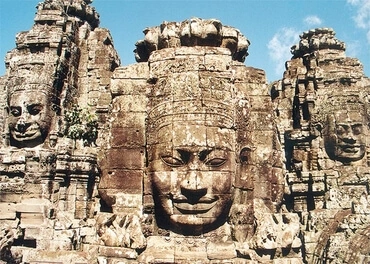1
And the children of Israel again did evil in the sight of Jehovah; now Ehud was dead.
2
And Jehovah sold them into the hand of Jabin king of Canaan, who reigned in Hazor; and the captain of his army was Sisera, who dwelt in Harosheth-Goim.
3
And the children of Israel cried to Jehovah; for he had nine hundred chariots of iron, and he mightily oppressed the children of Israel twenty years.
4
And Deborah, a prophetess, the wife of Lapidoth, judged Israel at that time.
5
And she dwelt under the palm-tree of Deborah between Ramah and Bethel in mount Ephraim; and the children of Israel came up to her for judgment.
6
And she sent and called Barak the son of Abinoam out of Kedesh-Naphtali, and said to him, Hath not Jehovah the God of Israel commanded? Go and draw towards mount Tabor, and take with thee ten thousand men of the children of Naphtali and of the children of Zebulun,
7
and I will draw unto thee, to the torrent Kishon, Sisera, the captain of Jabin's army, and his chariots and his multitude, and I will give him into thy hand.
8
And Barak said to her, If thou goest with me, then I will go, but if thou goest not with me, I will not go.
9
And she said, I will by all means go with thee, only that it will not be to thine honour upon the way which thou goest, for Jehovah will sell Sisera into the hand of a woman. And Deborah arose, and went with Barak to Kedesh.
10
And Barak called together Zebulun and Naphtali to Kedesh; and there went up at his feet ten thousand men; and Deborah went up with him.
11
(Now Heber the Kenite had severed himself from the Kenites, from the children of Hobab the father-in-law of Moses, and had pitched his tent as far as the oak of Zaannaim, which is by Kedesh.)
12
And they told Sisera that Barak the son of Abinoam had gone up to mount Tabor.
13
Then Sisera gathered together all his chariots, nine hundred chariots of iron, and all the people that were with him, from Harosheth-Goim to the torrent Kishon.
14
And Deborah said to Barak, Up; for this is the day in which Jehovah hath given Sisera into thy hand! Is not Jehovah gone out before thee? And Barak went down from mount Tabor, and ten thousand men after him.
15
And Jehovah discomfited Sisera, and all the chariots, and all the army, with the edge of the sword before Barak; and Sisera got down from [his] chariot, and fled on foot.
16
And Barak pursued after the chariots, and after the army, to Harosheth-Goim; and all the army of Sisera fell by the edge of the sword; not one was left.
17
And Sisera fled on foot to the tent of Jael the wife of Heber the Kenite; for there was peace between Jabin the king of Hazor and the house of Heber the Kenite.
18
And Jael went out to meet Sisera, and said to him, Turn in, my lord, Turn in to me; fear not. And he turned in to her, into the tent, and she covered him with the quilt.
19
And he said to her, Give me, I pray thee, a little water to drink, for I am thirsty. And she opened the flask of milk, and gave him drink, and covered him.
20
And he said to her, Stand in the door of the tent, and it shall be if any one come and inquire of thee, and say, Is there any man here? that thou shalt say, No.
21
And Jael Heber's wife took a tent-pin, and took the hammer in her hand, and went softly to him, and smote the pin into his temples, and it penetrated into the ground; for he had fallen into a deep sleep and was faint; and he died.
22
And behold, as Barak pursued Sisera, Jael went out to meet him, and said to him, Come, and I will shew thee the man whom thou seekest. And he went into her [tent], and behold, Sisera lay dead, and the pin was in his temples.
23
So God subdued on that day Jabin king of Canaan before the children of Israel.
24
And the hand of the children of Israel ever advanced, and prevailed against Jabin king of Canaan, until they had cut off Jabin king of Canaan.








